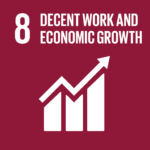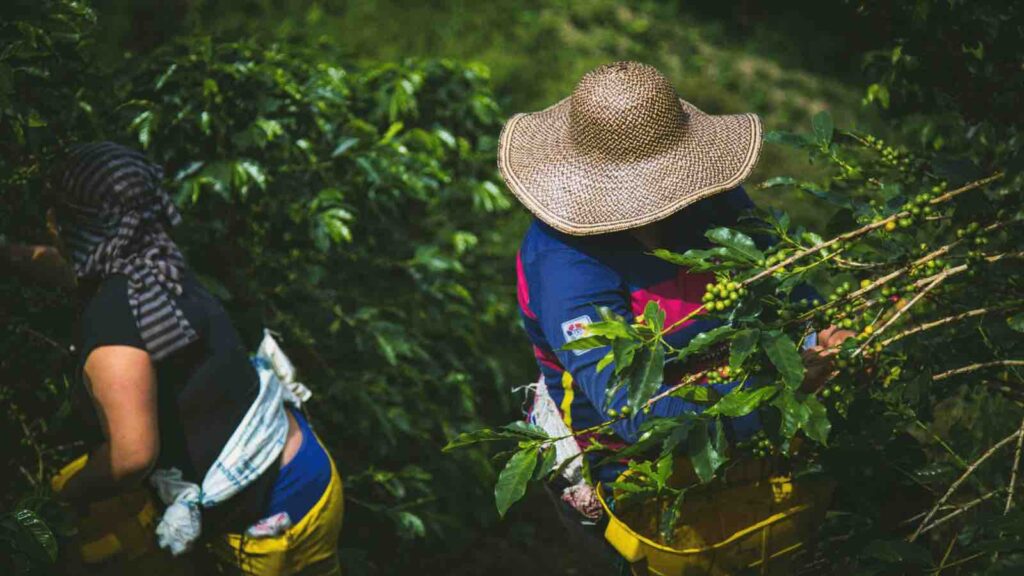As climate risks intensify, building a climate-resilient coffee industry has become more urgent than ever.
Coffee, one of the world’s most consumed beverages, faces a growing threat from climate change, jeopardizing the livelihoods of millions of smallholder farmers and the economies of coffee-producing regions. As the industry grapples with rising temperatures, erratic rainfall, and extreme weather events, agroforestry is emerging as a promising solution to bolster the resilience of coffee farms and ensure a sustainable future for this vital crop.
RELEVANT SUSTAINABLE GOALS




The Climate Challenge for Coffee
The coffee industry is acutely vulnerable to the impacts of climate change, which disrupts the delicate balance required for coffee cultivation. Fluctuating temperatures, shifting rain patterns, and extreme weather events can severely affect coffee productivity, quality, and price. These changes not only threaten the industry’s economic stability but also have significant socio-economic consequences for the estimated 25 million households worldwide, most of whom are smallholder farmers with limited resources.
In more than 80 countries, smallholder farmers—who constitute about 80% of the global coffee farming community—are particularly at risk. With farms often spanning less than five hectares, these farmers lack the financial capacity, knowledge, and technology needed to adapt to the changing climate, making them vulnerable to reduced yields and income instability.
Agroforestry: A Sustainable Solution
Agroforestry, defined by the Food and Agriculture Organization (FAO) as the integration of trees with crop and animal farming systems, offers a nature-based approach to enhance the resilience of coffee farms. By diversifying yields and income sources, improving food security, and increasing the adaptability of farms to climate change, agroforestry presents a viable pathway for smallholder farmers to secure their livelihoods.
In coffee production, agroforestry involves planting coffee alongside shade trees rather than on vast monoculture plantations. This practice not only shields coffee plants from excessive heat and soil erosion but also contributes to carbon sequestration and biodiversity preservation. However, successful adoption requires robust support systems, including training, technical assistance, and policies that encourage long-term investment in agroforestry.
Promoting Agroforestry Through Training and Partnerships
Efforts to promote agroforestry are already underway in various coffee-growing regions. In Malawi and Uganda, the FAO and Slow Food Coffee Coalition (SFCC) have conducted workshops and training sessions to help farmers understand the benefits of agroforestry and equip them with the necessary skills and knowledge. These programs engage farmers in identifying challenges and opportunities within their coffee farms and provide technical support to integrate agroforestry practices.
In Malawi, 11 workshops involved over 342 farmers from 13 coffee communities, with nearly half of the participants being women. In Uganda, 118 farmers, 35% of whom were women, received training to enhance their agroforestry practices. These initiatives are critical in ensuring that agroforestry is not only adopted but also sustained through supportive land tenure systems and policies.
Building a Climate-Resilient Coffee Industry
As climate risks intensify, building a climate-resilient coffee industry has become more urgent than ever. The adoption of agroforestry is just one aspect of a broader strategy that must include comprehensive support from governments, businesses, and civil society. A robust commitment to sustainable practices, backed by effective systems and policies, is essential to safeguard the well-being of farmers and the environment.
In Iyula village, interventions by the Hanns R. Neumann Stiftung (HRNS) under the Coffee & Climate (c&c) project have provided farmers with knowledge on selecting suitable shade trees for their coffee plantations. By ensuring high shade levels and minimizing competition for soil nutrients, these efforts contribute to the resilience of coffee farms against climate-induced stresses.
However, shade management alone is not sufficient. In addition to agroforestry, c&c supported Iyula AMCOS in establishing a coffee nursery in 2021, capable of producing 10,000 shade tree seedlings and 25,000 high-yield, disease-resistant coffee variety seedlings each season. These varieties are resistant to common threats such as Coffee Wilt Disease (CWD) and Coffee Berry Disease (CBD), reducing the need for pesticides and lowering production costs for farmers.
As the demand for shade trees and improved coffee varieties grows, there is a risk of deforestation, particularly in areas like Iyula village, where natural forests are prevalent. To mitigate this risk, the c&c project encourages farmers to expand their agroforestry practices within existing farm areas rather than encroaching on forested lands. Educating farmers on the environmental benefits of preserving forests and integrating trees into their farms is crucial in ensuring sustainable agroforestry practices.
International Cooperation and Knowledge Sharing
The importance of international cooperation in promoting sustainable agroforestry practices is highlighted by initiatives like the Indonesia-India Learning Exchange program under the India-U.S. Triangular Development Partnership (TriDeP) Activity. From July 28 to August 6, a 22-member Indonesian delegation visited India to learn from the country’s successful agroforestry practices in coffee-growing areas. Supported by Indian Centers of Excellence, including the National Institute of Agriculture Extension Management (MANAGE) and the Coffee Board of India, the program facilitated knowledge exchange and addressed environmental and economic challenges facing the coffee industry.
As the global coffee industry faces the growing challenges of climate change, establishing a climate-resilient coffee sector will require joint research initiatives, educational exchanges, and pilot programs to test and refine sustainable practices. Developing specialized training curricula for extension officials and exploring models like India’s Coffee Board could provide valuable insights for adapting agroforestry to different contexts.





